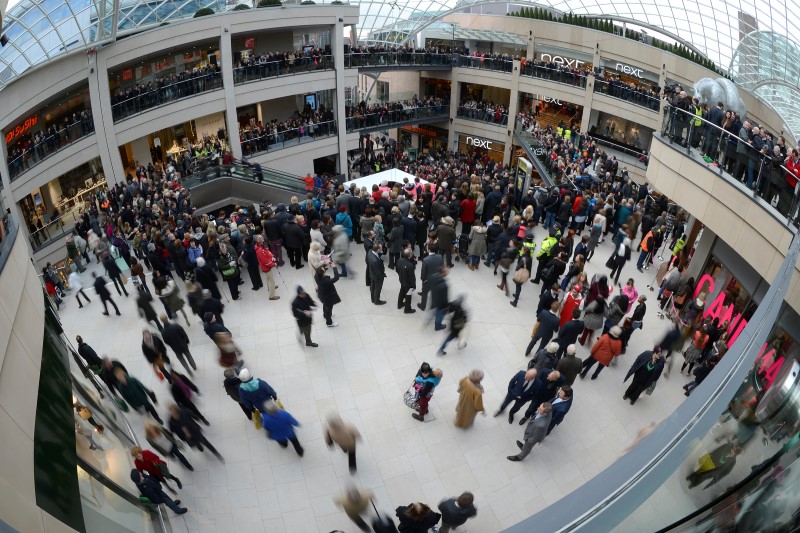(Repeats story published late on Thursday)
* Heavy presence of civilians slows Iraqi offensive
* IS fighters sow confusion by mixing with residents
* Jihadists willing to die in suicide attacks on troops
By Stephen Kalin
MOSUL, Iraq, Nov 17 (Reuters) - A vehicle shielded with metal plates and driven by a suicide attacker turned onto a main road filled with soldiers in eastern Mosul and burst into a ball of fire, causing several casualties.
As it careered down the road it was riddled with gunfire as Iraqi forces responded to the latest Islamic State counterattack against their push to reclaim the northern city.
This and what followed on Thursday were indicative of the challenges Iraq's U.S.-backed military faces in fighting enemies who are willing to kill themselves to defend their last major stronghold in the country while surrounded by well over a million civilians.
Elite Counter Terrorism Service (CTS) forces posted at intersections along the road pounded targets a few hundred metres away with heavy machine gun fire. Sharpshooters honed in on black-clad figures scurrying across rooftops or popping out of houses with AK-47s to take a few pot shots.
An hour later, a U.S.-led coalition airstrike pounded an Islamic State mortar position before soldiers launched a dozen mortars of their own in a bid to eliminate a gunman who had been spotted and only seemed to get closer.
A commercial drone circling overhead drew gunfire from troops unsure if it belonged to Islamic State or the Iraqi military.
All the while, scores of residents carrying backpacks, shopping bags and even pots and pans were fleeing across the frontlines as hundreds more crouched inside their homes in areas retaken by the military a day earlier.
The offensive to take the largest city under Islamic State control in Iraq or Syria is turning into the biggest battle in Iraq's turbulent history since the U.S.-led invasion in 2003. The advance entered a second month on Thursday. heavy presence of civilians in Mosul, Iraq's second-largest city, has forced the government to slow its campaign which has nearly surrounded the metropolis but so far only breached the jihadists' defences from the eastern side.
The military regularly diverts resources to feed, transport and provide medical care to civilians caught in the crossfire, and soldiers are constantly making tough calls about whether to risk their own lives by giving residents the benefit of the doubt or to open fire on potentially innocent civilians.
"No car is allowed here," said a CTS soldier standing on the main road in Tahrir district where the car bomb had gone off moments earlier. "We shoot any car we see moving, even if there is a family inside because there is a good chance they are wearing suicide vests."
The soldiers, who have rooftop lookouts across the front, say they have learned to identify potential assailants from afar through clues like dress and gait.
"They have destroyed the neighbourhood," said a young boy collecting unused machine gun rounds from the road amid clashes, though it was unclear which side he was blaming.
INFORMANTS
The mixing of Islamic State fighters with residents is slowing - but not stopping - the military's drive to defeat a ruthless enemy while protecting civilians, said Captain Hussam al-Aboudi, who was commanding soldiers in Tahrir district on Thursday.
"We have sources, we have the names of Daesh fighters, we know them," he told Reuters, using an Arabic acronym for Islamic State. "Residents also give us information - like they say, 'Daesh posted a sniper on top of my house.'"
Earlier in the day, a man in the adjacent Zahra neighbourhood, which the military recaptured earlier this week from the jihadists, approached a black military Humvee to share a tip.
"Last night around 11 o'clock I heard a commotion in that house ... yes, the red one. It's a Daesh house. You guys need to search it," he told the driver through the driver-side window.
It was not clear if that lead produced any results, but a CTS major told Reuters that a day earlier his men had detained four Islamic State fighters holed up in a house in Zahra on the advice of another tipster.
The Iraqis rely on informants inside the city - both in Islamic State-held areas and those recaptured from the militants - for intelligence on everything from the location of foot soldiers to the habits and thinking of top leaders. resident Alaa Youssef, 47, said civilians in Mosul had an obligation to inform the military about Islamic State fighters who had hidden inside houses or shaved their beards and changed their clothing to blend in with civilians.
"It is (the civilians') last chance to have a role, not just in Tahrir but in all of Mosul," he said outside his home, which had been hit by an Islamic State mortar two days earlier.
"If they do not cooperate and work together, we will go back to the same situation."
